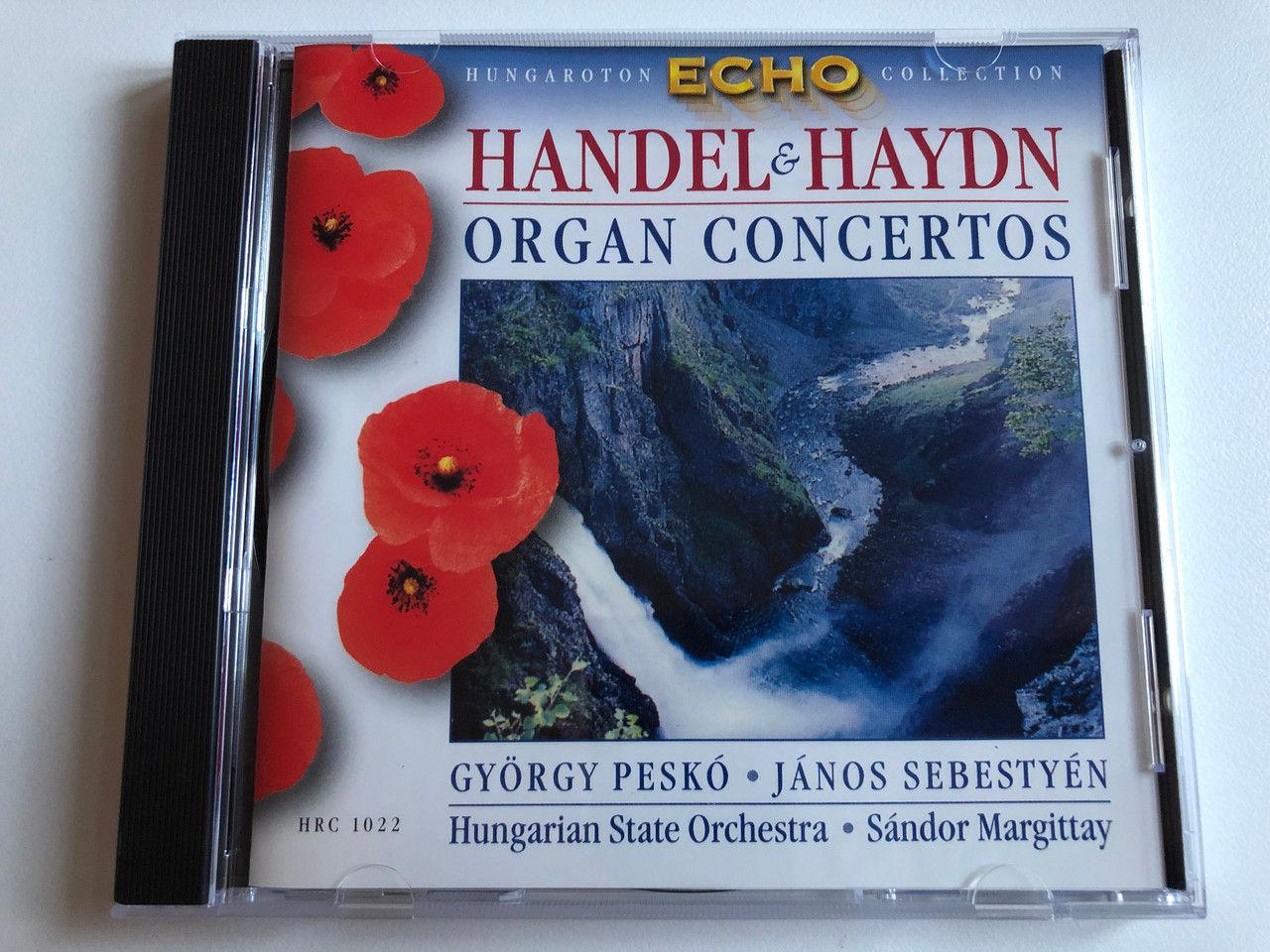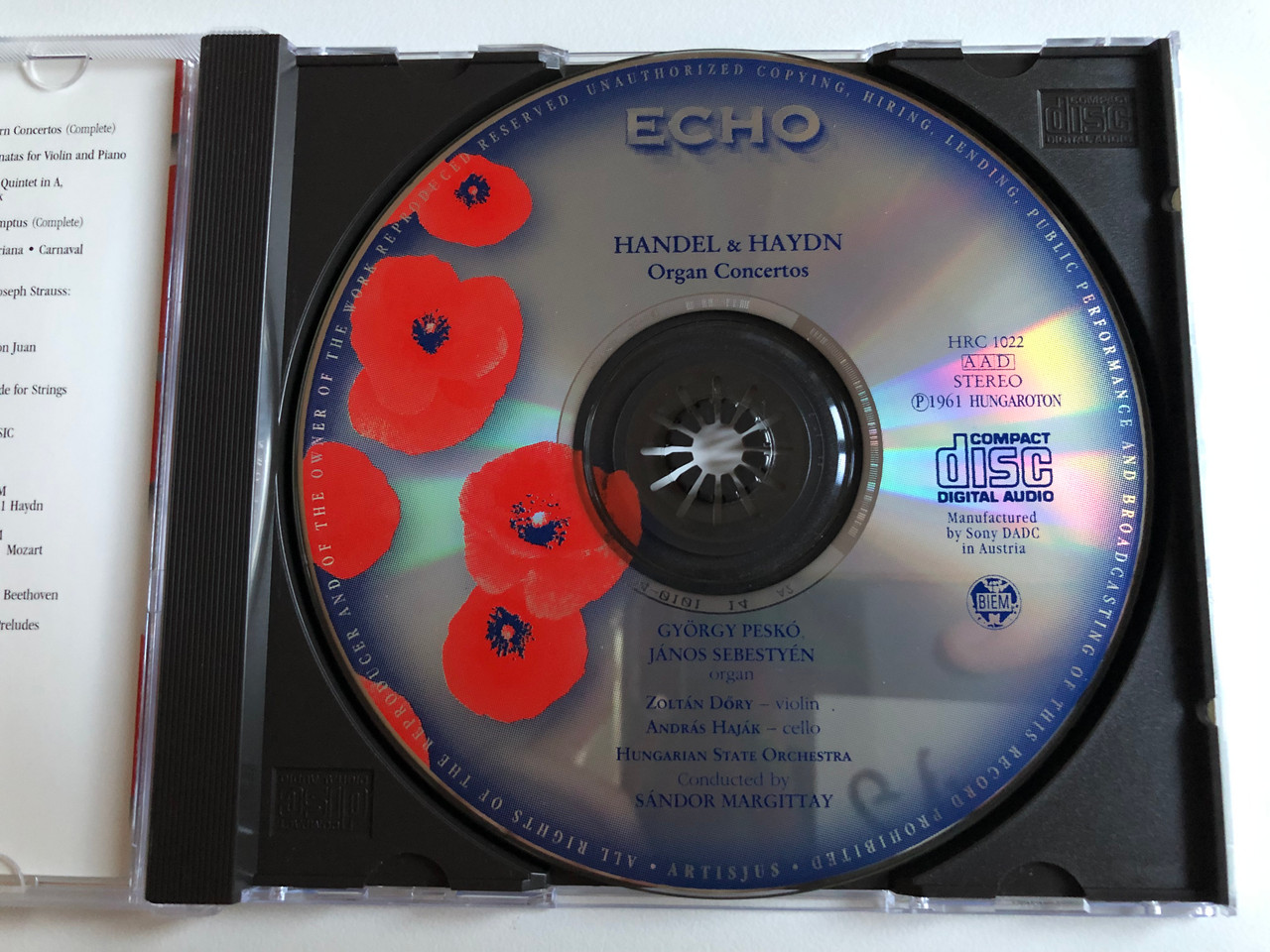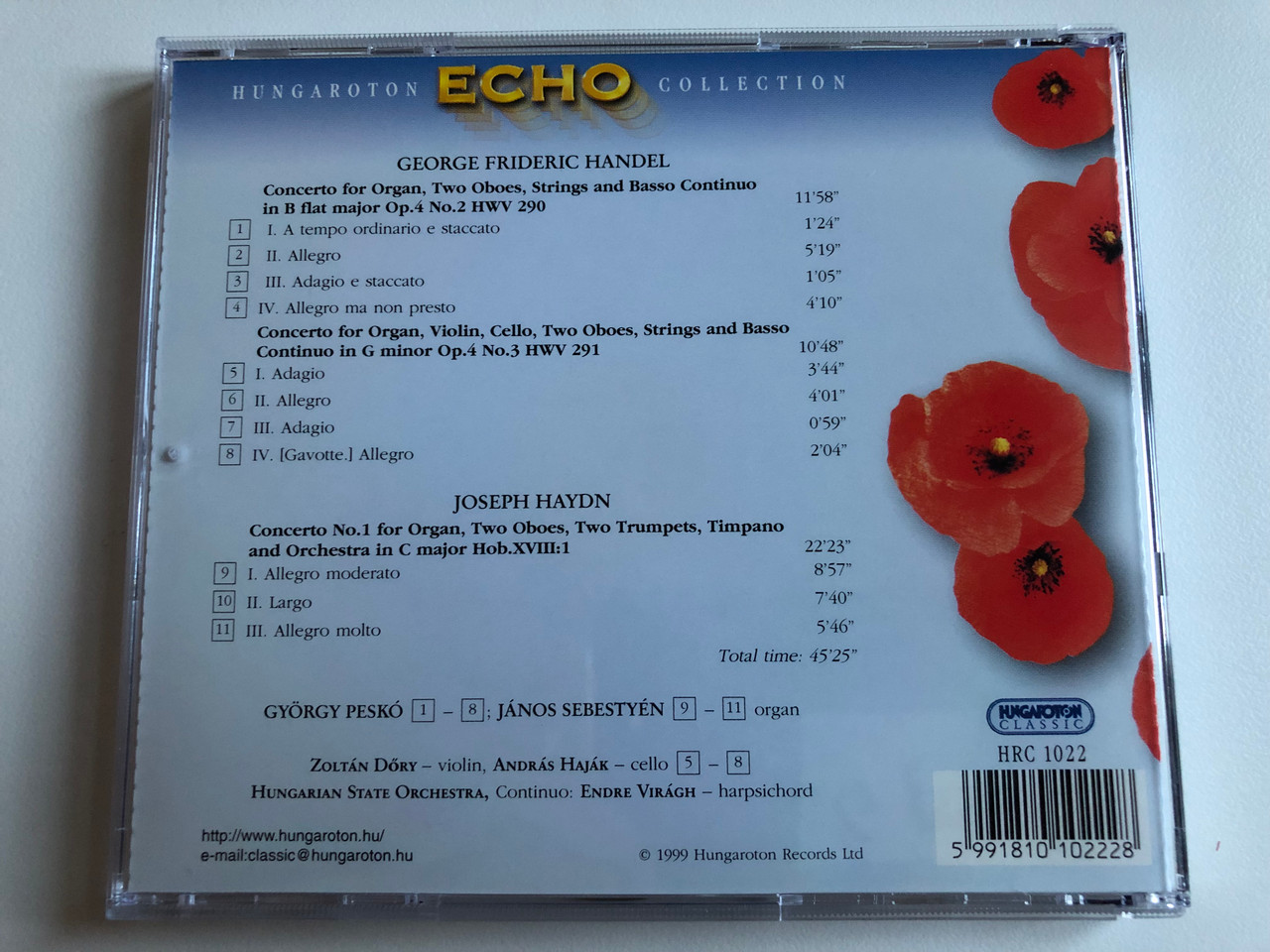Description
Handel & Haydn - Organ Concertos / György Peskó, János Sebestyén, Hungarian State Orchestra, Sándor Margittay / Hungaroton Echo Collection / Hungaroton Classic Audio CD 1999 Stereo / HRC 1022
UPC 5991810102228
George Frideric (or Frederick) Handel (/ˈhændəl/; baptised Georg Friederich Händel, German: [ˈɡeːɔʁk ˈfʁiːdʁɪç ˈhɛndl̩]; 23 February 1685 – 14 April 1759) was a German-British Baroque composer well known for his operas, oratorios, anthems, concerti grossi, and organ concertos. Handel received his training in Halle and worked as a composer in Hamburg and Italy before settling in London in 1712, where he spent the bulk of his career and became a naturalised British subject in 1727. He was strongly influenced both by the middle-German polyphonic choral tradition and by composers of the Italian Baroque. In turn, Handel's music forms one of the peaks of the "high baroque" style, bringing Italian opera to its highest development, creating the genres of English oratorio and organ concerto, and introducing a new style into English church music. He is consistently recognized as one of the greatest composers of his age.
Franz Joseph Haydn (/ˈhaɪdən/; German: [ˈfʁants ˈjoːzɛf ˈhaɪdn̩]; 31 March 1732 – 31 May 1809) was an Austrian composer of the Classical period. He was instrumental in the development of chamber music such as the piano trio. His contributions to musical form have led him to be called "Father of the Symphony" and "Father of the String Quartet".
Haydn spent much of his career as a court musician for the wealthy Esterházy family at their Eszterháza Castle. Until the later part of his life, this isolated him from other composers and trends in music so that he was, as he put it, "forced to become original". Yet his music circulated widely, and for much of his career he was the most celebrated composer in Europe.
He was a friend and mentor of Mozart, a tutor of Beethoven, and the older brother of composer Michael Haydn.
Tracklist:
| Concerto For Organ, Two Oboes, Strings And Basso Contino (11:58) |
| 1 | I. A Tempo Ordinario E Staccato |
1:24 |
| 2 | II Allegro |
5:19 |
| 3 | III. Allegro E Staccato |
1:05 |
| 4 | IV. Allegro Ma Non Presto | 4:10 | |
|
Concerto For Organ, Violin, Cello, Two Oboes, Strings And Basso |
(10:48) |
| 5 | I. Adagio |
3:44 |
| 6 | II. Allegro |
4:01 |
| 7 | III. Adagio |
0:59 |
| 8 | IV. (Gavotte) Allegro | 2:04 | |
|
Concerto No. 1 For Organ, Two Oboes, Two Trumpets, Timpano And Orchestra In C Major (22:23) |
| 9 | I. Allegro Moderato |
8:57 |
| 10 | II. Largo |
7:40 |
| 11 | III. Allegro Molto |
5:46 |
- Cello – Haják András (tracks: 5 to 8)
- Conductor – Sándor Margittay
- Harpsichord – Endre Virágh
- Orchestra – Hungarian State Orchestra
- Organ – György Peskő (tracks: 1 to 8), János Sebestyén (tracks: 9 to 11)
- Violin – Zoltán Dőry (tracks: 5 to 8)























